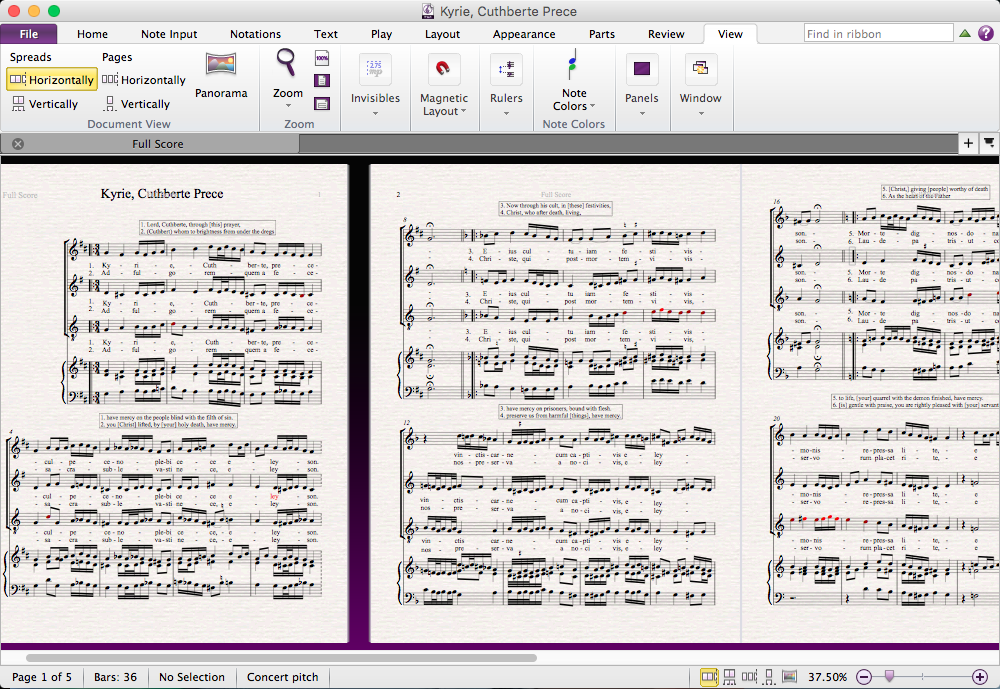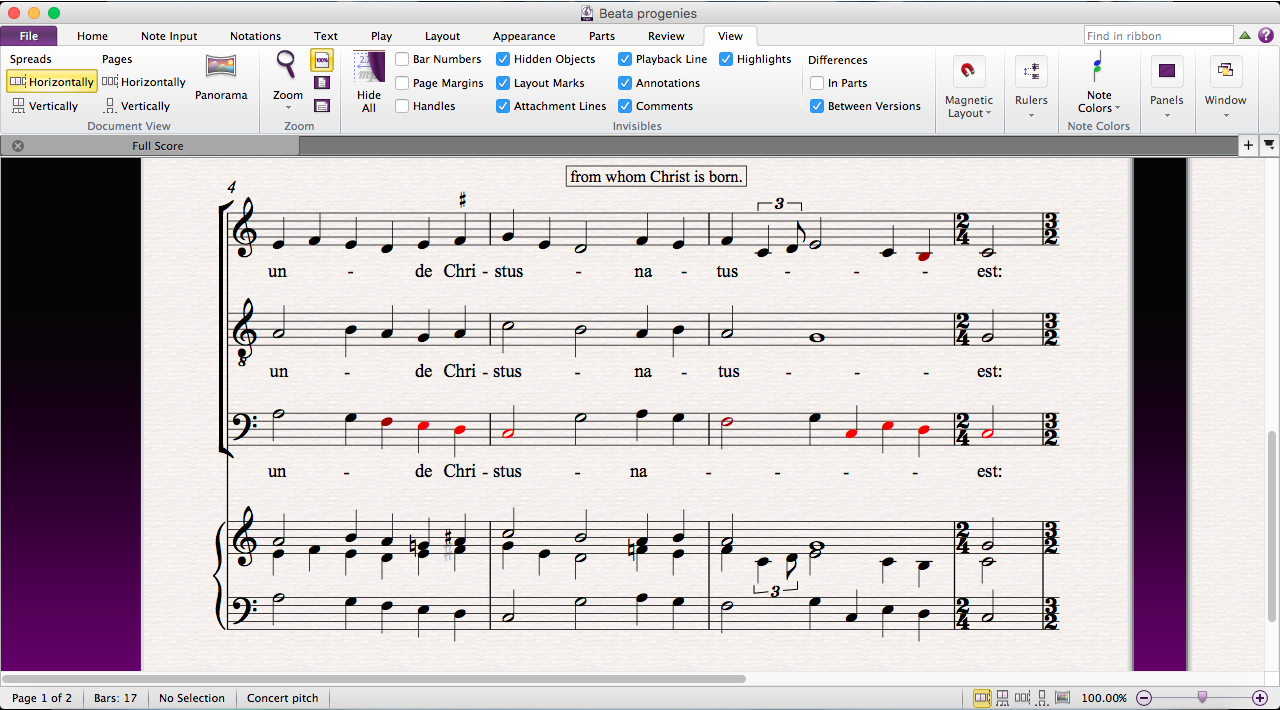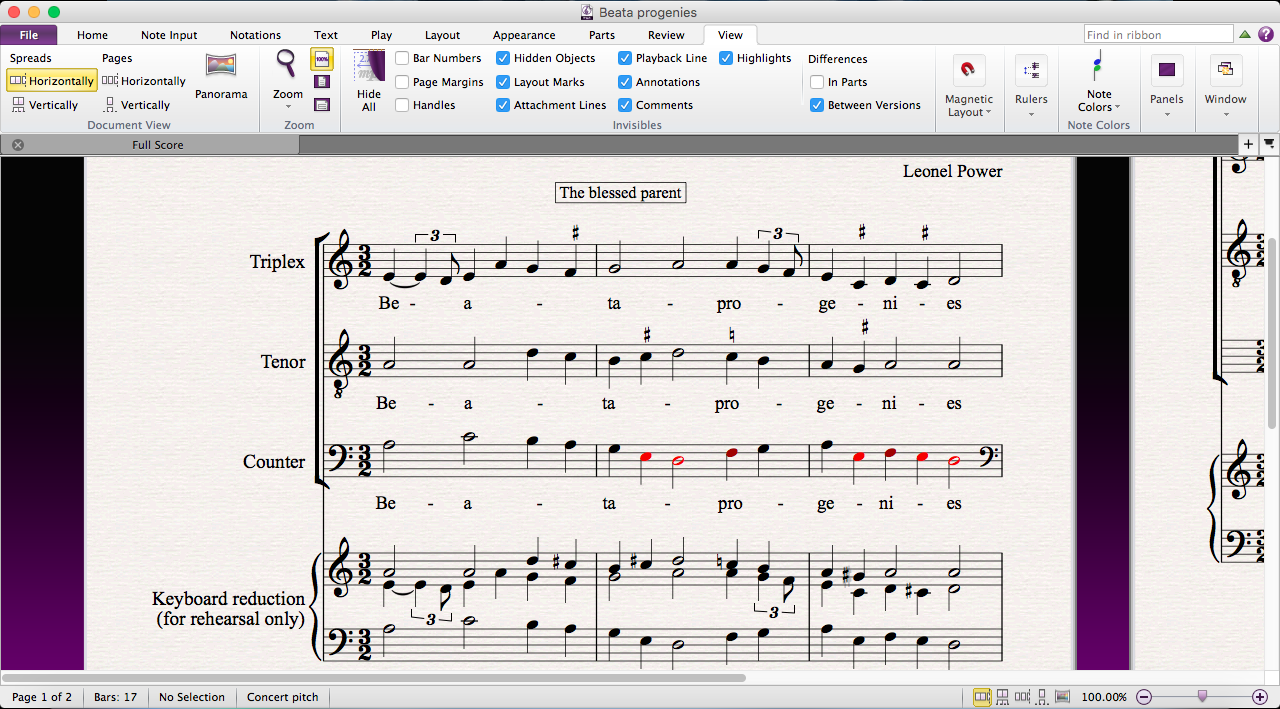My Ford Scholar project consisted of my taking scholarly editions of music from the Middle Ages up through the late Renaissance and using the music notation software Sibelius to turn them into performance scores that could be used by ensembles.
In completing this project, I gained exposure to an incredible amount of early repertoire to which I would not have otherwise been exposed. In addition to giving me music with which to work, my Ford Scholar mentor, lecturer Drew Minter, encouraged me to spend time browsing the parts of the Music Library where all the reserve, anthology editions of early music are kept. Drew pointed out to me that before the Internet made music-browsing incredibly simple from one’s desk, the way that generations upon generations of people discovered and became familiar with musical literature was by searching through libraries. I learned that being able to quickly and easily navigate a music library is itself a skill that I would like to cultivate.
In completing this project, I learned the countless aspects of a piece of music that make the score easily readable and accessible for a musician – facets that I had never considered before. These qualities include but are not limited to spacing, alignment, and size of: lyrics, note-heads, note stems, bar lines, staves, systems (sets of staves), clefs, time signatures and key signatures. As someone who struggles with visual processing issues, being able to create visually clear scores was extremely satisfying for me.
I had the experience of translating a great deal of Latin, in addition to Spanish. I decided that the clearest way to insert these translations into the scores was to put them right next to the original Latin or Spanish lyrics, a feature that most performance scores do not have.
I was also tasked with creating clear keyboard reductions of all the vocal parts. My experience in playing keyboards gave me many good ideas on how to make those keyboard parts as neat and clear as possible.
I am pleased that I was able to acquire solid proficiency with Sibelius this summer. I realized that this is a skill set that I will absolutely need at some point, since I would like to pursue a career that focuses on sacred music, and therefore much early music. I look forward to incorporating score creation into my career trajectory.



